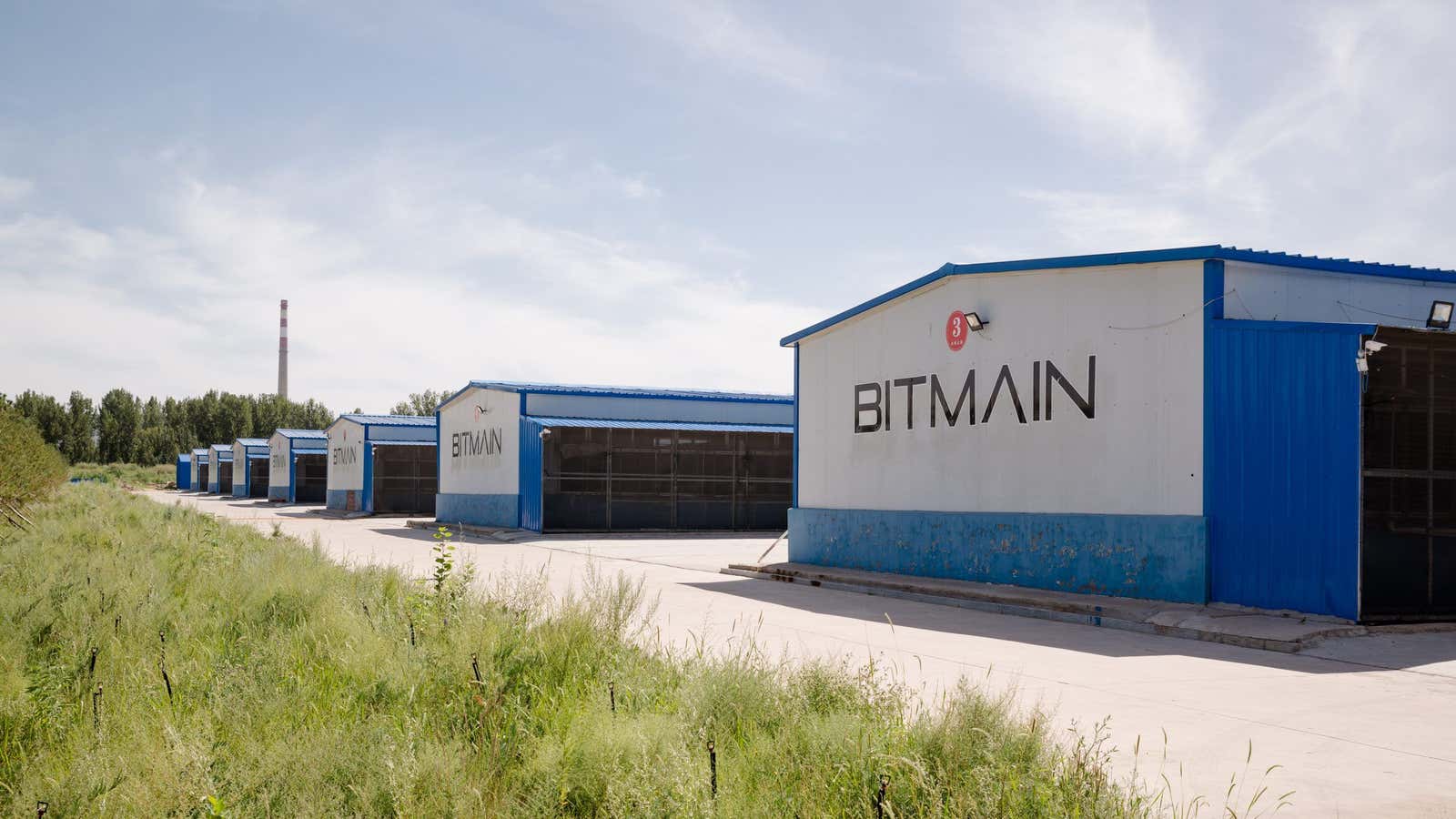Bitmain is the world’s biggest maker of bitcoin mining rigs, earning a reported $4 billion in profits last year. Now it’s using that cash to become a major force in venture capital investing, announcing today (May 15) that it led a $110 million round in Circle, a Boston-based cryptocurrency exchange and wallet business.
The mega-round, which reportedly values Circle at $3 billion, was done in just three weeks, Bitmain co-founder Jihan Wu said. “Our investment team is still quite small and we work fast,” he said on the sidelines of the Consensus conference in New York, where the announcement was made. Wu said his investment team was focused on blockchain projects for now. Wu would not say how much Bitmain invested. A slew of other venture capital firms also invested in the round, including Accel, IDG, and General Catalyst.
Bitmain will also partner with Circle to develop a so-called stablecoin—a crypto token that’s pegged to a regular currency—with the first one being a tokenized US dollar called USD Coin, or Circle USDC. The token will be completely backed by dollar reserves. The token will be designed according to a set of rules and governed by a non-profit called Centre. Centre members would be able to issue their own stablecoins, alongside the current members, Circle and Bitmain.
The stablecoin is the first step in Bitmain’s vision of “private central banks,” Wu said. That’s the notion of a blockchain-based, algorithmic issuer of currency that’s not linked to a government, as Wu has previously outlined. “It’s a very important enabler for a private central bank,” he said. “Currencies can do good or bad things, so we need a certain framework to limit money laundering risks. If we have an open platform we can limit the potential negative things.”
The rest of the crypto world is rushing to develop a widely adopted stablecoin. The appeal lies in the fact that stablecoins would allow crypto traders to shield their assets from the volatility of bitcoin or other crypto coins, while avoiding fees and delays in converting their crypto assets into fiat currency. Even the Nobel prize-winning economist Myron Scholes is advising a stablecoin project.
The issuers of the most popular stablecoin, Tether, say the token is backed by dollar reserves, but that claim is shrouded in controversy, and has not been proven by an independent audit. There are about $2.2 billion in tether circulating today, according to data provider CoinMarketCap.
Bitmain has also diversified into developing specialized chips for artificial intelligence. Wu said sales of its first-generation chip, called Sophon, amounted to “not much.” But he says a second-generation design is being tested, and that current results are on par with offerings from the chip-maker Nvidia.
Competition in the crypto mining business has been heating up. Samsung reported that its recent quarterly earnings were boosted by sales of cryptocurrency mining chips. Bitmain is not a Samsung customer, Wu confirmed. Bitmain uses Taiwanese foundry TSMC. A mysterious firm called Halong Mining is purported to use Samsung chips. When asked whether he thought Halong was behind the spike in Samsung chip sales, Wu was coy. “No comment,” he said, with a smile.
